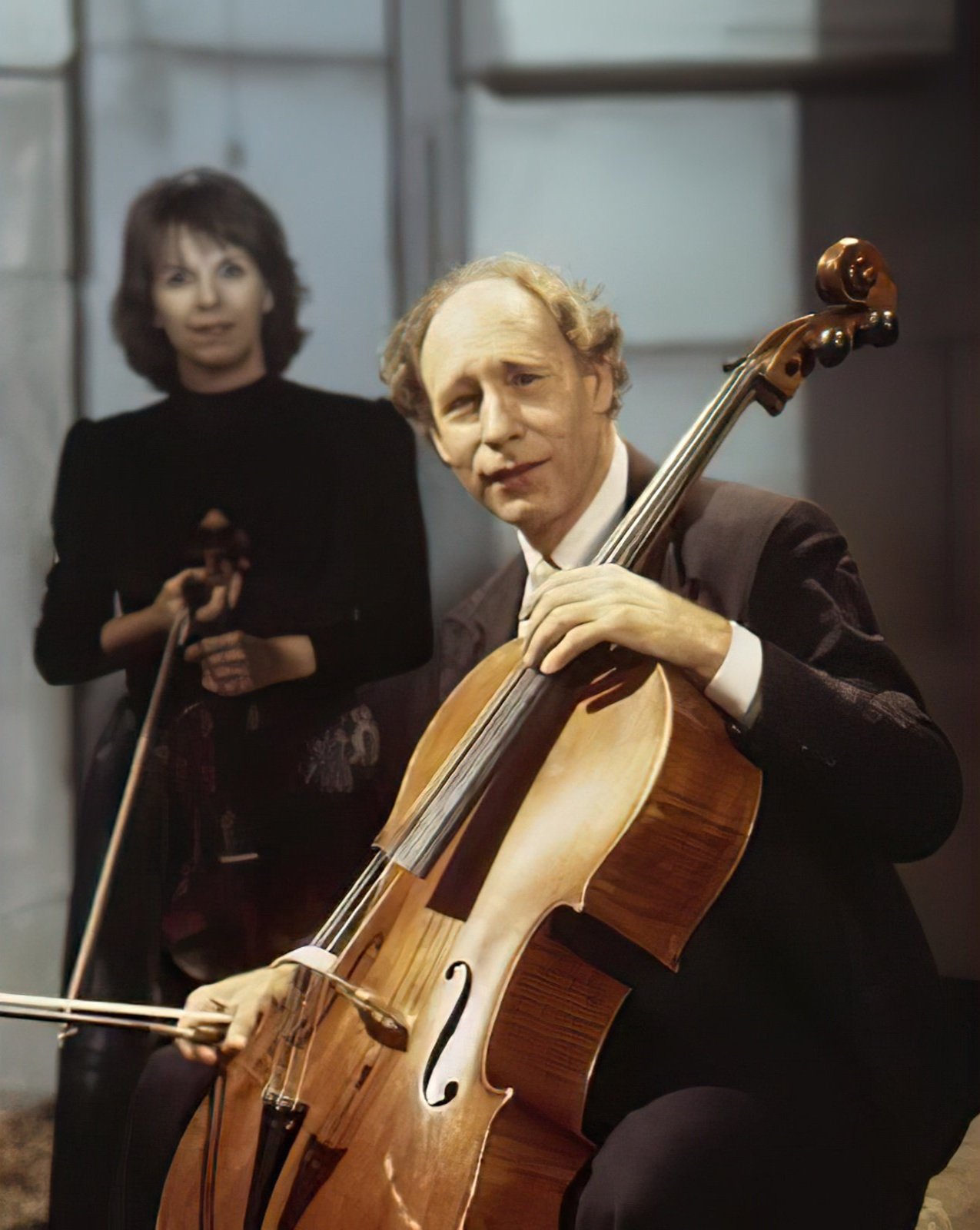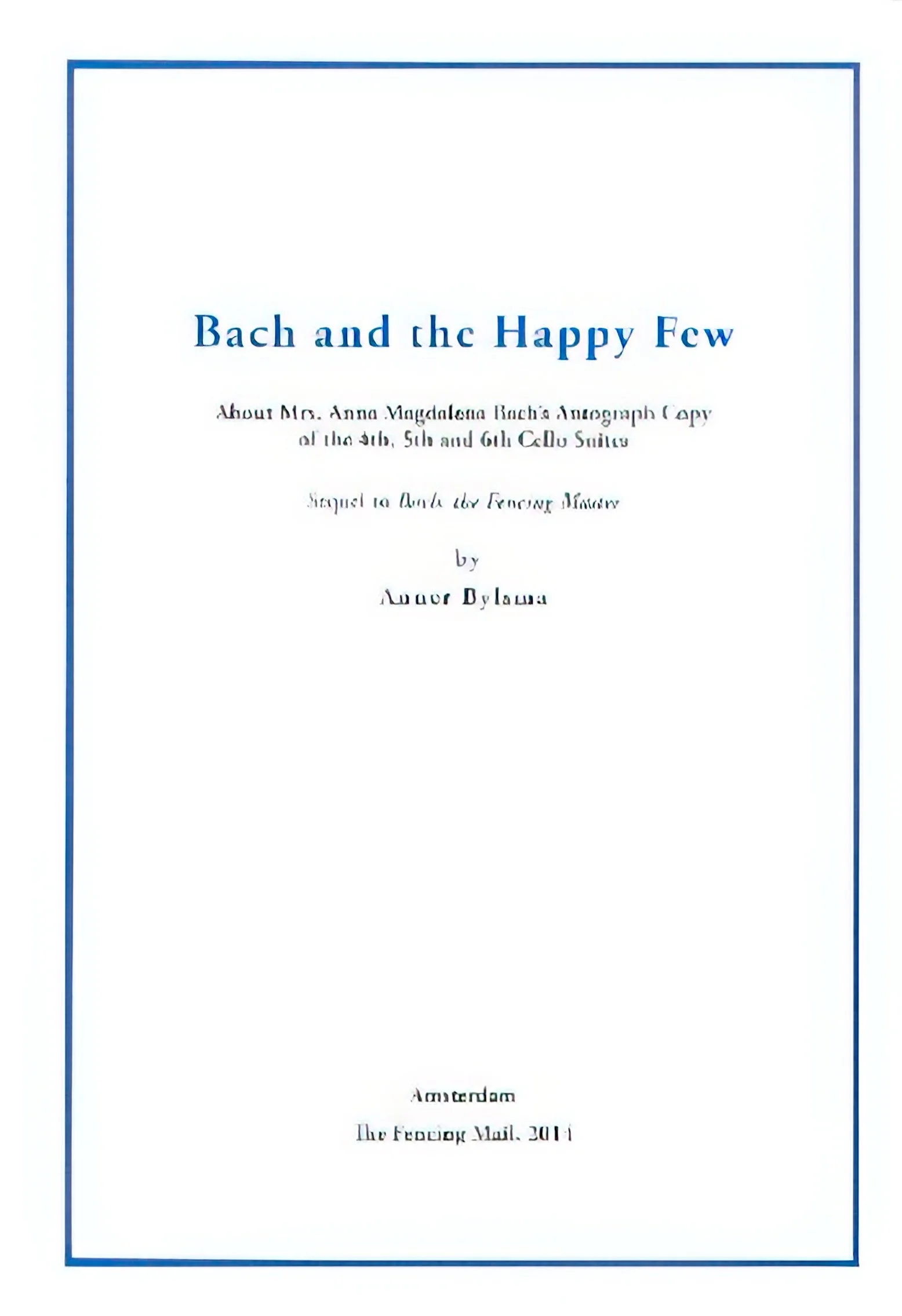The Power of Then
Last week I journeyed into the past. I spent a few days in Amsterdam visiting old friends, riding a bike around the city I spent fourteen years of my life in. It is now another fourteen years since I lived there.
I moved to Holland in 1984 because of a chance encounter with a recording of the Dutch cellist, Anner Bijlsma, playing the Brahms Clarinet Trio. I went to study with him for a year but that year became five amazing years of learning from him, helping take care of his children and driving him around Europe to concerts. That became an additional nine years of living and playing chamber music in Europe after I finished studying with him.
Vera Beths and Anner Bijlsma
My inspiration for last week’s short trip was to visit Anner, who is about to turn 80. I had lunch with him and his wife, Vera Beths, the great violinist. Looking back on my life from this vantage point, it grows more apparent that experiences in the past are only truly measurable in the big picture of one’s life from the distance of the years gone by. I am now the same age my great teacher was when he was teaching me. Although he is now unable to play, he is still full of ideas and passion for music — writing furiously — and as opinionated and rebellious as ever.
And although he told me back then to forget everything he ever taught me, to became my own player, my own person, and not to merely follow his way of thinking, I have only just recently been able to change some fingerings he gave me during our lessons for the Debussy Sonata. And I do remember everything he said, so I have perhaps failed in this emphatic, most important piece of advice — to forget everything and create my own totally unique way of approaching music.
There is a conundrum in studying with an artist so completely original and personal as Anner. He embodies everything I find important (and often lacking) in today’s Classical music: a strong belief in risk-taking, spontaneity, curiosity, wit, and a total disregard for the beautiful tone as an end in itself that so many players seek . It was he who taught me that music can speak as well as sing, that a standardized, vibrated lush tone applied to all music is a sort of whitewash technique that erases all inflection and rhetoric in music — especially Baroque and Classical repertoire. How can I forget everything he said when I liked everything he said so much? And this very high esteem I hold him in might be, according to him, the very thing that could be hindering my own development. Idolizing is not healthy, but perhaps extreme respect and appreciation is OK. Perhaps we find our models in life to aspire to — not to mimic.
During the lunch we listened to a single movement of Beethoven’s G Major String Trio he and Vera had recorded with violist, Jurgen Kussmaul. It was difficult for all three of us to hold back the tears. He said it was one of those moments when everything just came together. Most touchingly, Anner confessed that he didn’t know back then how beautiful it had sounded. This surprising statement from him seems further proof of how powerful hindsight is in allowing us a more complete appreciation of our lives. The moments we experience in the present are hard to evaluate until they are over and we are looking back on them.
I didn’t know back in 1984 that my chance encounter with Anner’s recording would lead me to a whole new life, a whole new approach to music, a whole new culture to relate to and to learn from. I didn’t know then, in all the years of rain and slipping on ice on a bike with a cello on my back, sometimes crying from the cold, that I would look back and see that I was living in an unbelievable time of the development of early music, and in an explosion of experimentation also in contemporary music, and that the people I got to know and to play with there would stay in my thoughts and in my playing for the rest of my life. In the way that Anner didn’t realize at the time how good he sounded, I perhaps didn’t appreciate enough the life I got to live there until now.
Time is strange. I have changed, other people have changed, and places change. Music is temporal. It stops when we stop playing. Yes, there are recordings, but the physical feeling of playing is gone when we no longer play. A concert is over as soon as the last applause. If all goes well, there will be another concert to give and more people to listen, but there will always be that last concert, that last intense interaction with the present moment that happens during a performance. There is no substitute for the feeling of shaping a phrase, communicating a musical thought with your body through an instrument. Time gets very full. Every second seems to last a very long time. A phrase is over right after it is played. There is memory, but it isn’t totally reliable, and it is passive, not active.
I was especially touched during my visit when Vera Beths offered to play at the new music festival that Eric Zivian and I are starting next summer, in Sonoma, California. We are calling it the Valley of the Moon Music Festival and we are going to be playing (and teaching) Classical and Romantic music on original instruments.
Our first concert to introduce this future festival takes place this July 27th. Eric and I will be joined by amazing violinist Joseph Maille and former apprentice Derek Tan for a program of Beethoven and Mozart. Tickets are on sale here.



